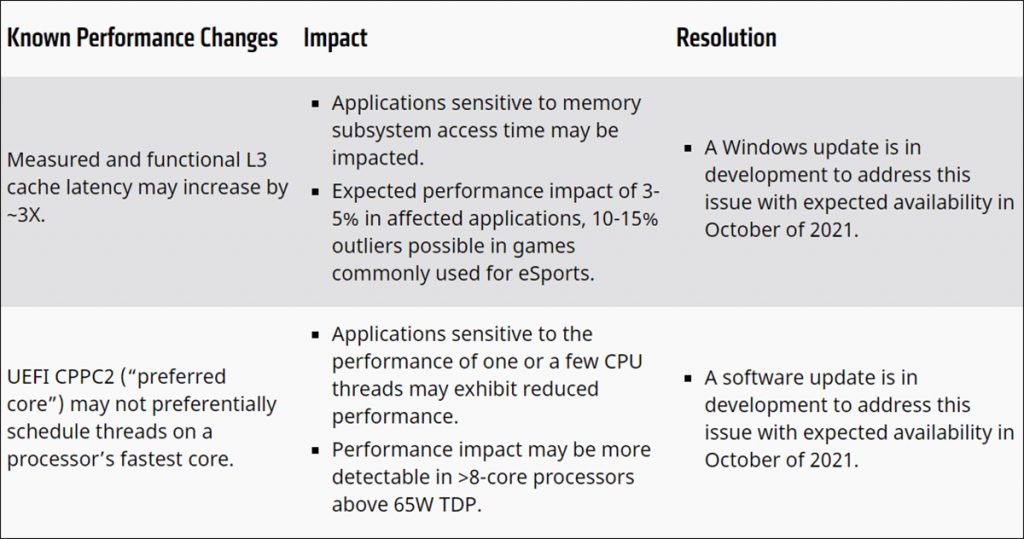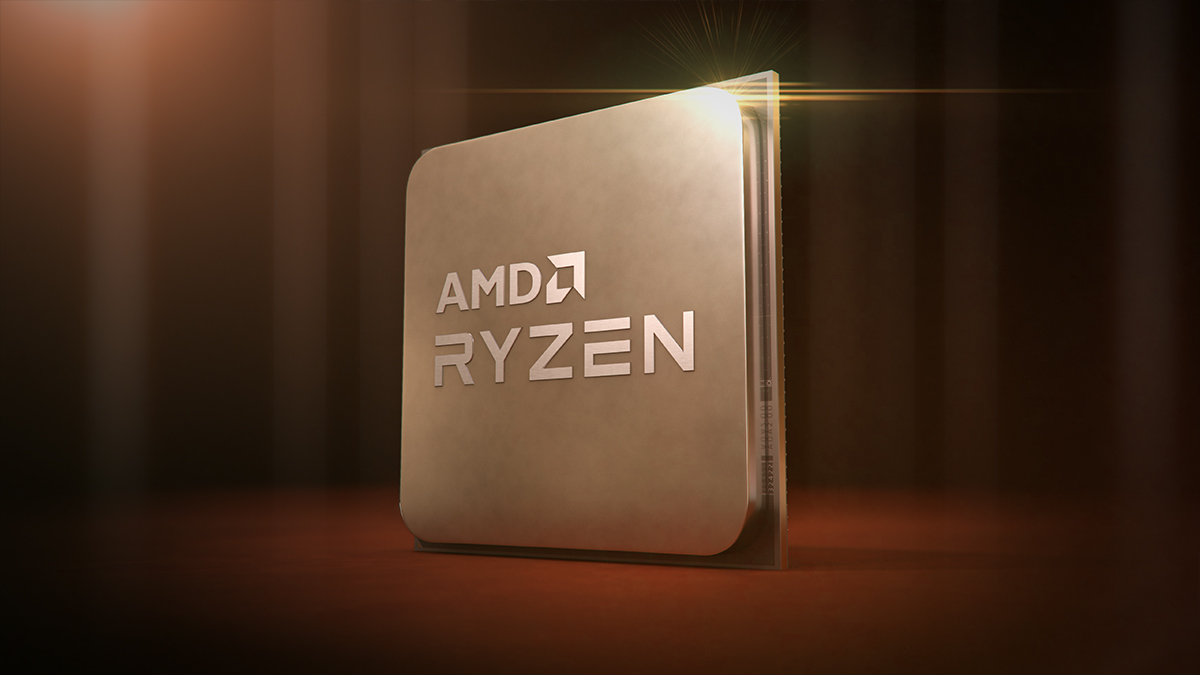Windows 11 has been out for a couple of days now, and as is expected with any major new piece of software, there’s been some bugs and issues reported. Some are quite niche, such as an incompatibility between Windows 11 and a Vietnamese browser. Others are a fair bit more significant, like AMD discovering that Windows 11 causes performance issues of up to 15% when using their CPUs.

The first issue has to do with the L3 cache on the CPU. The L3 cache is a small amount of memory built into the CPU that helps manage processing between the cores as well as between the CPU and the system RAM. Windows 11 however seems to be causing measured and functional L3 cache latency to increase by up to three times. This in turn means that programs that are highly dependent on memory access times are affected, with AMD estimating a 3-5% performance hit in most affected applications. However, games—especially eSports titles—may see a 10-15% performance drop.
On top of that, another issue spotted by AMD has to do with the way Windows 11 determines the best CPU core. AMD’s preferred core technology allows the operating system to assign CPU cores that can hit the highest frequencies to the most important tasks. Windows 11 though seems to not schedule threads to the processor’s fastest cores accordingly, leading to reduced performance. This is especially true for AMD CPUs with more than 8 cores and have a TDP over 65W.
With over a hundred different AMD CPUs listed under Microsoft’s Windows 11 compatibility list, this means that many different PCs could be affected. The problem doesn’t only affect mainstream AMD Ryzen CPUs either, with their EPYC and Athlon chips also impacted. Luckily, AMD states that a fix for the two aforementioned problems are currently in the works, and an update is expected to be released later this month.
Until then though, it’s perhaps wise to not update your AMD-powered PC or laptop to Windows 11 just yet, as even AMD themselves are recommending users to use Windows 10 for the time being.
[ SOURCE ]









